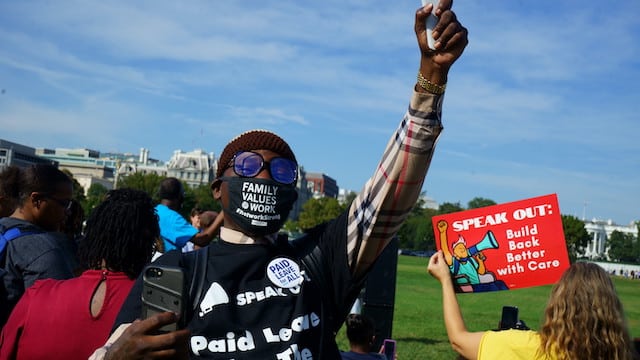The Right to Organize: A Measure of our Democracy

by Carol Joyner
Sanchioni Butler remembers trying to unionize workers four years ago at a Nissan plant in Canton, Mississippi, as a union rep for the UAW. After Nissan engaged in a massive union-busting effort, the union lost the vote. Butler is now one of millions of Americans who are supporting the Protecting the Right to Organize (PRO) Act, legislation that recently passed out of the House of Representatives––with 5 Republicans joining in support––that would clear some big hurdles for private sector workers to stand with their co-workers and vote for union representation. She believes having the PRO Act in 2017 would have resulted in a different outcome for the union election.
“We would have leveled the playing field,” Butler said. “There was real worker intimidation. People were routinely called into ‘captive audience’ meetings. Managers, the front line bullies, scared workers with threats that the plant will close, or we’ll know how you voted. Under the PRO Act, such activity will now be illegal, creating a clear pathway for workers to make a good decision about their work life. This is especially true for most workers of color who will only get access to the American dream if they have a contract and can bargain in good faith.”
Like voting, the right to join a union and bargain in good faith should be a tenet of our democracy. Joining together and negotiating for better benefits and pay has long been the road to economic security––and the path to the middle class––for millions of Americans. However, union density, the percentage of workers carrying a union card, has eroded from 34 percent in the early 1970s to just 10 percent today and even lower across the private sector. When polled, the majority of workers want to join unions, but the task is very difficult and remains out of reach for most, especially in so-called “right to work” (RTW) states. The concerted attack on union activity and collective bargaining by employers, and interference by some elected officials who do their bidding, result in even greater challenges for those who want to form a union.
The ability to negotiate the terms of employment is often associated with the “Union Advantage.” It is well documented that union workers generally fare better economically than their non-union counterparts. Organized workers receive higher wages across the board than non-union employees, with even greater increases for Black, Latinx and women workers. They are more likely to have access to a guaranteed pension plan (70%) than non-union workers (13%); job-provided healthcare plans (75% compared to 48%); paid sick days (93% compared to 73%) and a host of other advantages: predictable schedules, vacation pay, and better workplace safety conditions. Many union members especially welcome the protection against arbitrary firings.
The COVID-19 pandemic has highlighted the differences between union and non-union workers. Union workers were able to negotiate protective equipment, safer workplaces and greater economic resources. And union power extends beyond the workplace and impacts the economic stability of the state and geographic region as well. Wages are lower in RTW states and workers are less likely to have access to employer-provided benefits, pay equity and paid time off, impacting the overall quality of life.
If passed, the PRO Act would address many of the challenges workers face in joining a union. It would prohibit employer interference and influence in union elections, including employer-sponsored mandatory meetings, and would permit union elections to be held in locations other than company property. It would prohibit employers from retaliating or discriminating against workers who participate in union strikes, and provide “whistleblower” protections for employees, including managers who expose unfair practices, labor violations and engage in other protected activities. The Act would also establish penalties for companies and their executives that violate workers’ rights to join a union or the NLRB orders.
Similar protections for all public sector employees would come from a separate bill, the Public Sector Freedom to Negotiate Act, which will soon be introduced in the House.
The PRO Act may be too late for the Nissan workers in Mississippi, but many others across the country are voting for union representation and require laws that counter anti-union forces. The vote for representation led by RWDSU in Bessemer, Alabama, amid employer intimidation by Amazon is a clear example. As the pandemic continues to lay bare the interdependent nature of our lives, unions will be a critical component of this nation’s recovery. Our nation is only as healthy as those facing the greatest threats––the essential and front line workers keeping our nation running. Support the PRO Act and give us all a fighting chance for life, liberty and the pursuit of happiness.